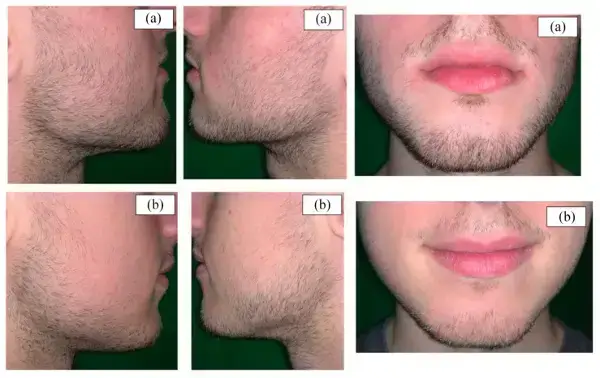
For a second week in a row, a reader e-mailed me something that impressed. Moreover, in ten years of writing this blog, I have never received original content of this length in terms of effort.
The reader (“RF”) has shared his 60-page version 1 document about androgenetic alopecia (AGA) causes on GitHub. (Note: keep checking in there for updated versions). It covers in detail the connection between AGA and diet and lifestyle
Mr. “RF” also gave me permission to let people download it from here: AGA Diet Lifestyle Connection. Even if you disagree with some of its content, it contains great advice on diet and health.
The reader would like to be known as “RF” and is not in this for publicity or to sell any product or subscription plan. The following statement from him reminds me of myself when I used to “work” full-time in several pointless office jobs:
“Due to my professional position in an office, spending enormous amounts of free time researching cosmetic issues would not be perceived well. I prefer to stay anonymous.”
Note that “RF” also sent me his before-strict-diet and after-strict-diet scalp hair photos and there is some clear regrowth after one year. His blood glucose levels declined from 110 to 85 over the course of two years (in the first year, he had not yet perfected his theory and diet regimen). One anecdotal report is obviously not too meaningful, but everything about this person seems legitimate and sincere to me.
We have communicated back and forth a number of times by now. He is interested in getting reader feedback, suggestions for improvements and corrections. This 60-page document will be revised with further improvements in the near future.
The Connection Between Diet, Lifestyle and Androgenic Alopecia
Almost two weeks after receiving this document, I have only had time to read through one-half of it thoroughly. I did not want to delay this post any further. For now, I will just summarize some of the key points below and will add more details later:
- While the connection between AGA and genetics is obviously strong, the early onset of and speed of progression of baldness are both significantly impacted by diet and lifestyle choices. This is proven from twin studies as well as diet related studies. Make sure to browse through all the new links on the top in my post titled: “Are men losing hair earlier than in past generations.” The increase in the rate of balding throughout Asia seems especially pronounced. Interestingly, the decline in global fertility rates and sperm counts is no longer even considered debatable. However, the increase in global hair loss rates is still not discussed much.
There are four key disease clusters that correlate highly with AGA:
- Metabolic Syndrome and Type II Diabetes.
- Cardiovascular disease.
- Polycystic Ovary Syndrome (PCOS) in women.
- Benign Prostatic Hyperplasia (BPH). i.e., enlarged prostates in men.
- Consumption of excess carbohydrates and sugar raises dihydrotestosterone (DHT) levels. This is exacerbated by: lack of magnesium (a cause of scalp tension); sedentary lifestyles; lack of sleep; stress; consumption of inflammatory foods; drinking alcohol; and smoking. Make sure to go through the chart on Page 18 and the later discussion of the body’s adipose storage process and fatty liver problem.
- Downstream effects of scalp vasculature damage and fibrosis.
- The section on halting hair loss is very detailed. The best diet is proposed as a whole-food plant-based (WFPB) diet. While a free-range meat based diet might be superior to a processed food diet, it still has problems. Meat consumption will raise your levels of purines and IGF-1, both detrimental to scalp hair.
I have not tried to check the evidence for the above, but the dietary advice given does not seem extreme. I am a bit skeptical about any hard-core diet regimens. My grandmother died last year at the age of 103 with almost all of her scalp hair still intact. She never ate meat in her life, and also had a very carbohydrate and sugar heavy diet. Including drinking Coke in old age like Warren Buffett. Sometimes, genes just make all the difference in the world.
Cholesterol, Insulin and Androgenetic Alopecia Severity
A number of people have in the past conducted studies and research on the impact of diet and health upon male and female pattern hair loss. Some of the below studies that analyze this connection are also cited by “RF” in his paper.
- One famous study that I have discussed a few times in the past pertains to the finding that Japanese men started balding at higher rates since adopting a western diet after World War II.
- A June 2021 paper from the UK concluded that treatment options for AGA should include: “A low cholesterol and low glycemic index diet, improved glucose control, and fortification with magnesium.”
- A very detailed 2016 system review on skin manifestations of insulin resistance is quite interesting. It discusses some recent findings on the significant relationship between androgenetic alopecia and insulin resistance. Moreover, some have argued that early onset androgenetic alopecia can indicate insulin resistance.
Note that male pattern baldness (MPB) is also known as androgenetic alopecia (AGA). Around 95 percent of men with hair loss are suffering from AGA. For women, that percent is a bit lower. Other less common types of hair loss that I have discussed in the past include alopecia areata and telogen effluvium.
Past Theories from Foote, English, Hagerty, Roddy and More
Over the past two decades, a number of online personalities have postulated unique theories behind the pathogenesis of androgenetic alopecia. And, more importantly, written detailed articles on methods to stop further hair loss. And possibly even regrow some hair. Healthy skepticism is the default emotion for all these interesting ideas of course.
- In 2019, I covered hair loss researcher Stephen Foote’s Hydraulic Theory of Hair Loss. He even responded to readers in the comments section of that post. He is currently in his mid-60s and published his last paper in 2015.
- Another unique hair loss personality is Robert English of Perfect Hair Health. I covered him in my 2019 post on scalp massage and mechanotransduction. His methodology is comprised of both scalp massage and dietary changes.
- In that same post (as well as here), I covered Tom Hagerty, renowned for his self-taught scalp exercises for hair growth. On his unique site, Tom covers nutrition and insulin resistance in detail.
- Another hair loss researcher that is widely cited in online forums is Danny Roddy. He has published a book called “Hair Like a Fox: A Bioenergetic View of Pattern Hair Loss.“
- On a slightly related note, there is Dr. Will Powers. He seems to have quite a following when it comes to his topical hair loss customized medications. He does not really belong in this post, but his Reddit page is quite something. I did not want to write an entire post about him so added him here.
- And while I am at it, who can ever forget crazy Ernie Primeau and his comprehensive (entire) body hair plucking for scalp hair growth theory? He even posted some comments in my above linked post covering him, and made some sense. I appreciated Ernie solely due to the fact that several hair transplant surgeons refused to believe me when I said that men with excessive body hair tend to bald at much higher rates. Only those who have been involved in the hair loss world for 20 years or more will remember Ernie. He ruined the renowned alt.baldspot newsgroup with incessant spam and bickering.
Hair Loss and Heart Disease
In the past, a number of studies and articles have covered the fact that men with male pattern hair loss (especially in the crown region) tend to have higher rates of heart disease. There also seems to be an inflammatory component to both hair loss and heart disease.
When doing research for this post, I even found a post I wrote in 2018 that covered new findings on Minoxidil possibly having heart and brain health benefits. Not surprising considering that it was originally used as a high blood pressure medication.

